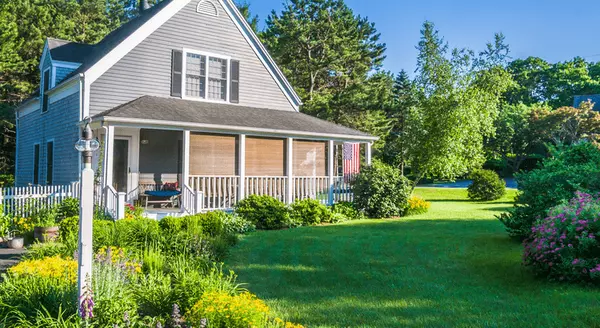Zero-Energy Homes: A Sustainable Future for Real Estate

In an era where environmental consciousness is at the forefront of our minds, the concept of zero-energy homes is gaining traction in the real estate industry. These homes represent a sustainable future where residential properties produce as much energy as they consume. In this blog, we'll explore the fascinating world of zero-energy homes and their potential to reshape the real estate landscape.
-
Defining Zero-Energy Homes:
Zero-energy homes, also known as net-zero homes, are designed to minimize energy consumption and maximize energy production. They achieve this through a combination of energy-efficient construction, renewable energy sources, and innovative technologies. The goal is for these homes to generate enough renewable energy to offset their energy use.
-
Energy-Efficient Design:
Zero-energy homes are constructed with energy efficiency in mind. They feature superior insulation, high-performance windows, airtight construction, and energy-efficient appliances. These design elements reduce the amount of energy needed to maintain comfortable living conditions.
-
Renewable Energy Sources:
To achieve net-zero status, zero-energy homes typically incorporate renewable energy sources like solar panels or wind turbines. These systems harness energy from nature to power the home's electrical needs. Excess energy can often be stored or sold back to the grid.
-
Monitoring and Control:
Advanced energy monitoring and control systems play a crucial role in zero-energy homes. Homeowners can track their energy usage in real-time and adjust consumption accordingly. Smart thermostats, lighting controls, and appliances further optimize energy usage.
-
Cost Savings and ROI:
While the initial investment in zero-energy features may be higher, these homes can lead to significant cost savings over time. Lower utility bills, potential tax incentives, and increased resale value can provide a favorable return on investment.
-
Environmental Benefits:
Zero-energy homes reduce reliance on fossil fuels, decrease greenhouse gas emissions, and lower overall energy consumption. They contribute to a healthier planet by mitigating the environmental impacts associated with traditional homes.
-
Mainstream Adoption:
As technology advances and environmental awareness grows, zero-energy homes are becoming more accessible and affordable. Builders and developers are increasingly incorporating these sustainable features into new construction projects.
Conclusion:
Zero-energy homes represent a promising and sustainable future for the real estate industry. They not only reduce the environmental footprint of residential properties but also offer financial benefits to homeowners. As technology continues to advance and renewable energy sources become more widespread, the adoption of zero-energy homes is expected to increase. These homes not only align with our environmental goals but also provide a glimpse into a more sustainable and energy-efficient future for real estate. As you explore housing options in the future, consider the potential of zero-energy homes to not only reduce your carbon footprint but also provide long-term economic advantages.
Categories
- All Blogs (781)
- Buyer's Market (9)
- Cash Flow (2)
- Design and Maintenance (42)
- Featured Listings (6)
- First-Time Home Buyers (39)
- Holidays (5)
- Home For Sale (7)
- Home Loans (3)
- Home Pricing (3)
- Home Showing (2)
- Homeowners (24)
- Investment Properties (9)
- Market Update (10)
- Mortgages (9)
- Real Estate Fun Facts (12)
- Real Estate Investors (22)
- Real Estate Marketing (13)
- Seller's Market (4)
- Selling Your Home (20)
- Sold Homes (12)
- South Jersey Updates (26)
- This Weekend Happenings (28)
- Tips For Home Buyers (17)
Recent Posts

![Builders Are Building Smaller Homes [INFOGRAPHIC]](https://img.chime.me/image/fs/chimeblog/20240504/16/w600_original_39aacbf5-2468-464c-acda-b86e3e29eff4-png.webp)








GET MORE INFORMATION

